CUPRA Born vs Hyundai Kona - Differences and prices compared
Compare performance (326 HP vs 218 HP), boot space and price (34700 £ vs 23100 £ ) at a glance. Find out which car is the better choice for you – CUPRA Born or Hyundai Kona?
Costs and Efficiency:
Looking at overall running costs, both models reveal some interesting differences in everyday economy.
Hyundai Kona has a convincingly advantage in terms of price – it starts at 23100 £ , while the CUPRA Born costs 34700 £ . That’s a price difference of around 11614 £.
In terms of energy consumption, the advantage goes to the Hyundai Kona: with 14.60 kWh per 100 km, it’s minimal more efficient than the CUPRA Born with 14.90 kWh. That’s a difference of about 0.30 kWh.
As for electric range, the CUPRA Born performs to a small extent better – achieving up to 594 km, about 80 km more than the Hyundai Kona.
Engine and Performance:
Power, torque and acceleration say a lot about how a car feels on the road. This is where you see which model delivers more driving dynamics.
When it comes to engine power, the CUPRA Born has a clearly perceptible edge – offering 326 HP compared to 218 HP. That’s roughly 108 HP more horsepower.
In acceleration from 0 to 100 km/h, the CUPRA Born is noticeable quicker – completing the sprint in 5.60 s, while the Hyundai Kona takes 7.80 s. That’s about 2.20 s faster.
In terms of top speed, the Hyundai Kona performs minimal better – reaching 210 km/h, while the CUPRA Born tops out at 200 km/h. The difference is around 10 km/h.
There’s also a difference in torque: CUPRA Born pulls decisively stronger with 545 Nm compared to 265 Nm. That’s about 280 Nm difference.
Space and Everyday Use:
Cabin size, boot volume and payload all play a role in everyday practicality. Here, comfort and flexibility make the difference.
Both vehicles offer seating for 5 people.
In curb weight, Hyundai Kona is distinct lighter – 1370 kg compared to 1828 kg. The difference is around 458 kg.
In terms of boot space, the Hyundai Kona offers to a small extent more room – 466 L compared to 385 L. That’s a difference of about 81 L.
In maximum load capacity, the Hyundai Kona performs barely noticeable better – up to 1300 L, which is about 33 L more than the CUPRA Born.
When it comes to payload, Hyundai Kona hardly perceptible takes the win – 490 kg compared to 452 kg. That’s a difference of about 38 kg.
Who wins the race in the data check?
The CUPRA Born sits well ahead of its rival in the objective data comparison.
This result only shows which model scores more points on paper – not which of the two cars feels right for you.
Costs and Consumption
View detailed analysis
Engine and Performance
View detailed analysis
Dimensions and Body
View detailed analysis
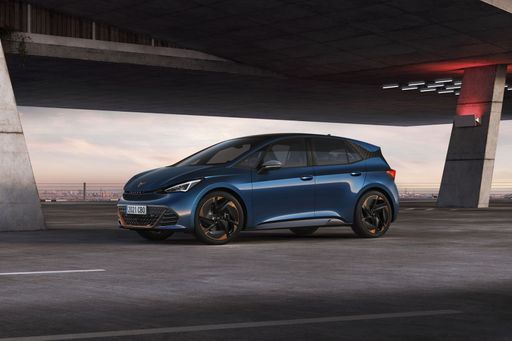
CUPRA Born
CUPRA Born
The CUPRA Born blends sharp, athletic styling with a playful electric character, delivering hatchback agility and hot-hatch attitude whether you're darting through the city or cruising the open road. Inside, the cabin punches above its weight with smart materials and practical space, making it a compelling pick for buyers who want electric motoring without surrendering the grin.
details
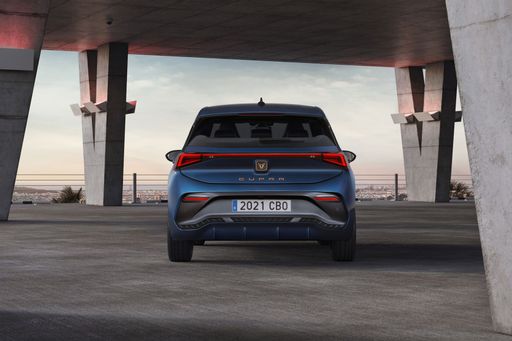
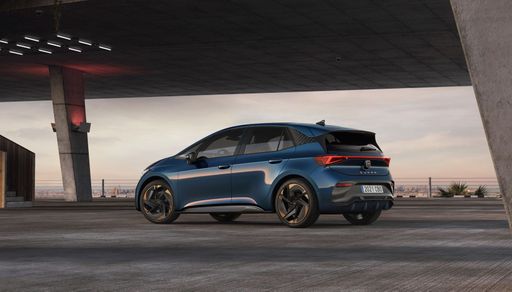
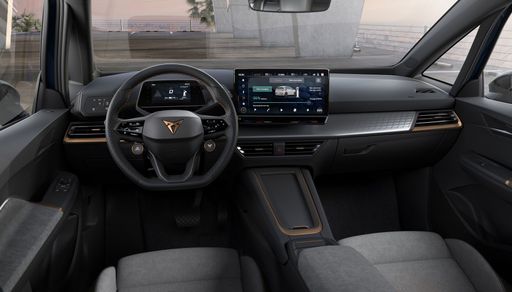
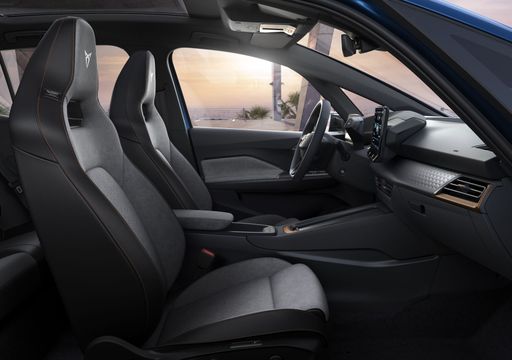
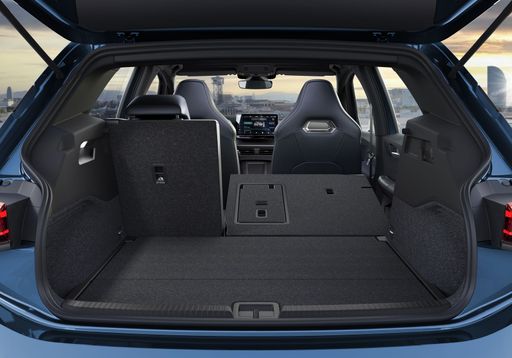
Hyundai Kona
The Hyundai Kona wears its personality on the outside with bold styling and sprightly handling that turns city driving into something a little more fun than a commute. It blends practical space, modern tech and sensible running costs into a compact, stylish package — a smart pick if you want flair without paying luxury prices.
details



Costs and Consumption |
|
|---|---|
|
Price
34700 - 45300 £
|
Price
23100 - 41600 £
|
|
Consumption L/100km
-
|
Consumption L/100km
4.6 - 7 L
|
|
Consumption kWh/100km
14.9 - 16 kWh
|
Consumption kWh/100km
14.6 - 16.8 kWh
|
|
Electric Range
427 - 594 km
|
Electric Range
377 - 514 km
|
|
Battery Capacity
60 - 79 kWh
|
Battery Capacity
1.3 - 65.4 kWh
|
|
co2
0 g/km
|
co2
0 - 163 g/km
|
|
Fuel tank capacity
-
|
Fuel tank capacity
38 - 47 L
|
Dimensions and Body |
|
|---|---|
|
Body Type
Hatchback
|
Body Type
SUV
|
|
Seats
5
|
Seats
5
|
|
Doors
5
|
Doors
5
|
|
Curb weight
1828 - 1999 kg
|
Curb weight
1370 - 1773 kg
|
|
Trunk capacity
385 L
|
Trunk capacity
466 L
|
|
Length
4324 mm
|
Length
4350 - 4385 mm
|
|
Width
1809 mm
|
Width
1825 mm
|
|
Height
1540 mm
|
Height
1580 - 1585 mm
|
|
Max trunk capacity
1267 L
|
Max trunk capacity
1300 L
|
|
Payload
431 - 452 kg
|
Payload
420 - 490 kg
|
Engine and Performance |
|
|---|---|
|
Engine Type
Electric
|
Engine Type
Electric, Petrol, Full Hybrid
|
|
Transmission
Automatic
|
Transmission
Automatic, Manuel
|
|
Transmission Detail
Reduction Gearbox
|
Transmission Detail
Reduction Gearbox, Manual Gearbox, Dual-Clutch Automatic
|
|
Drive Type
Rear-Wheel Drive
|
Drive Type
Front-Wheel Drive, All-Wheel Drive
|
|
Power HP
204 - 326 HP
|
Power HP
115 - 218 HP
|
|
Acceleration 0-100km/h
5.6 - 7.7 s
|
Acceleration 0-100km/h
7.8 - 11.9 s
|
|
Max Speed
160 - 200 km/h
|
Max Speed
162 - 210 km/h
|
|
Torque
265 - 545 Nm
|
Torque
200 - 265 Nm
|
|
Number of Cylinders
-
|
Number of Cylinders
3 - 4
|
|
Power kW
150 - 240 kW
|
Power kW
85 - 160 kW
|
|
Engine capacity
-
|
Engine capacity
998 - 1598 cm3
|
General |
|
|---|---|
|
Model Year
2024 - 2025
|
Model Year
2024 - 2025
|
|
CO2 Efficiency Class
A
|
CO2 Efficiency Class
A, D, C, E, F
|
|
Brand
CUPRA
|
Brand
Hyundai
|
What drivetrain options does the CUPRA Born have?
The CUPRA Born is available as Rear-Wheel Drive.




